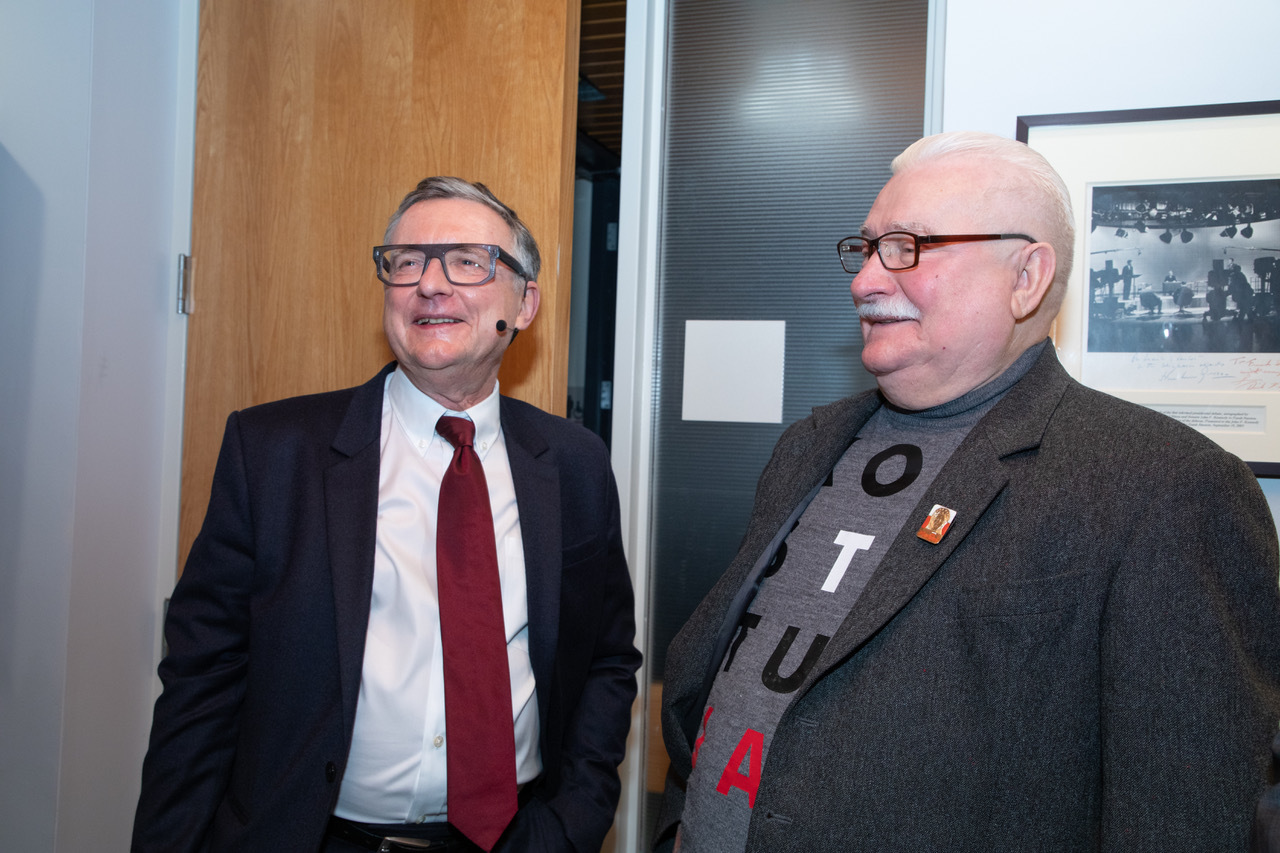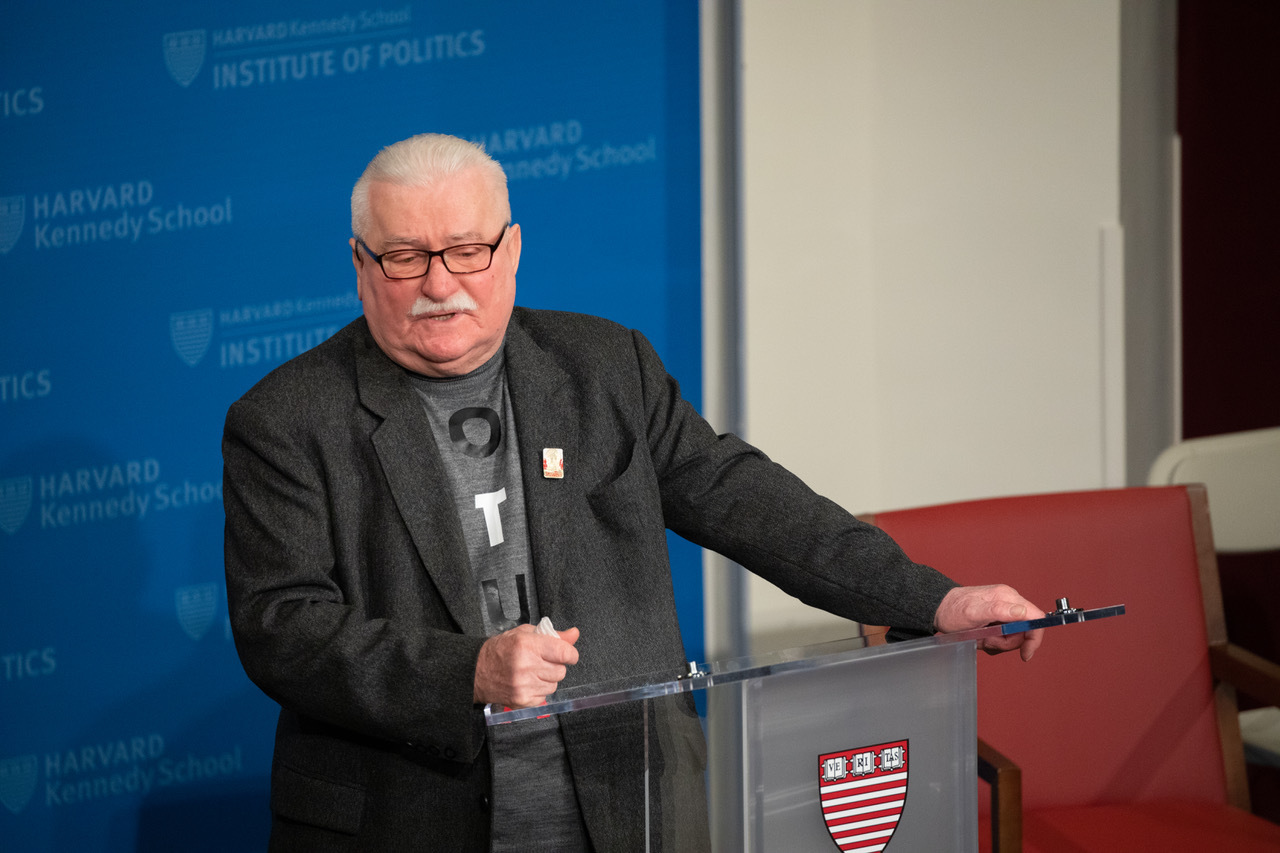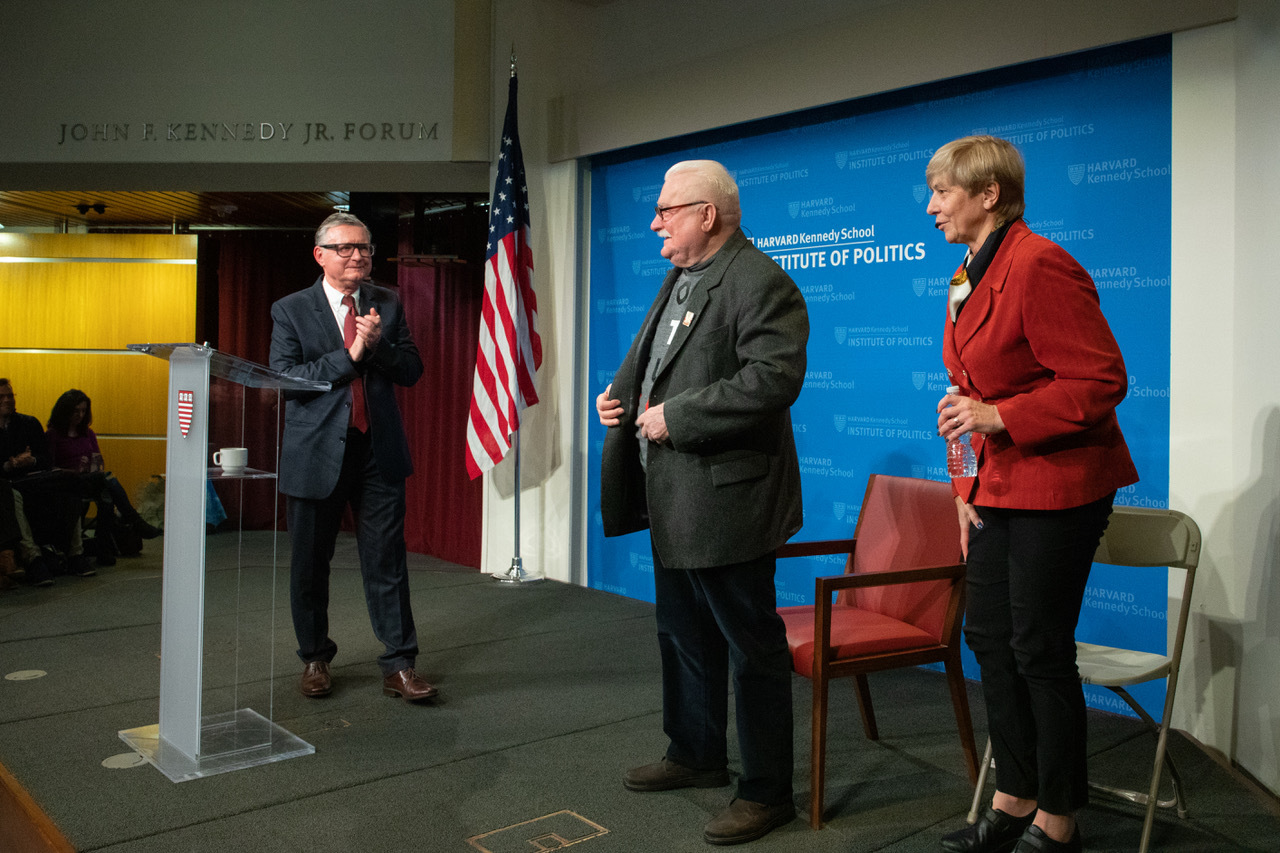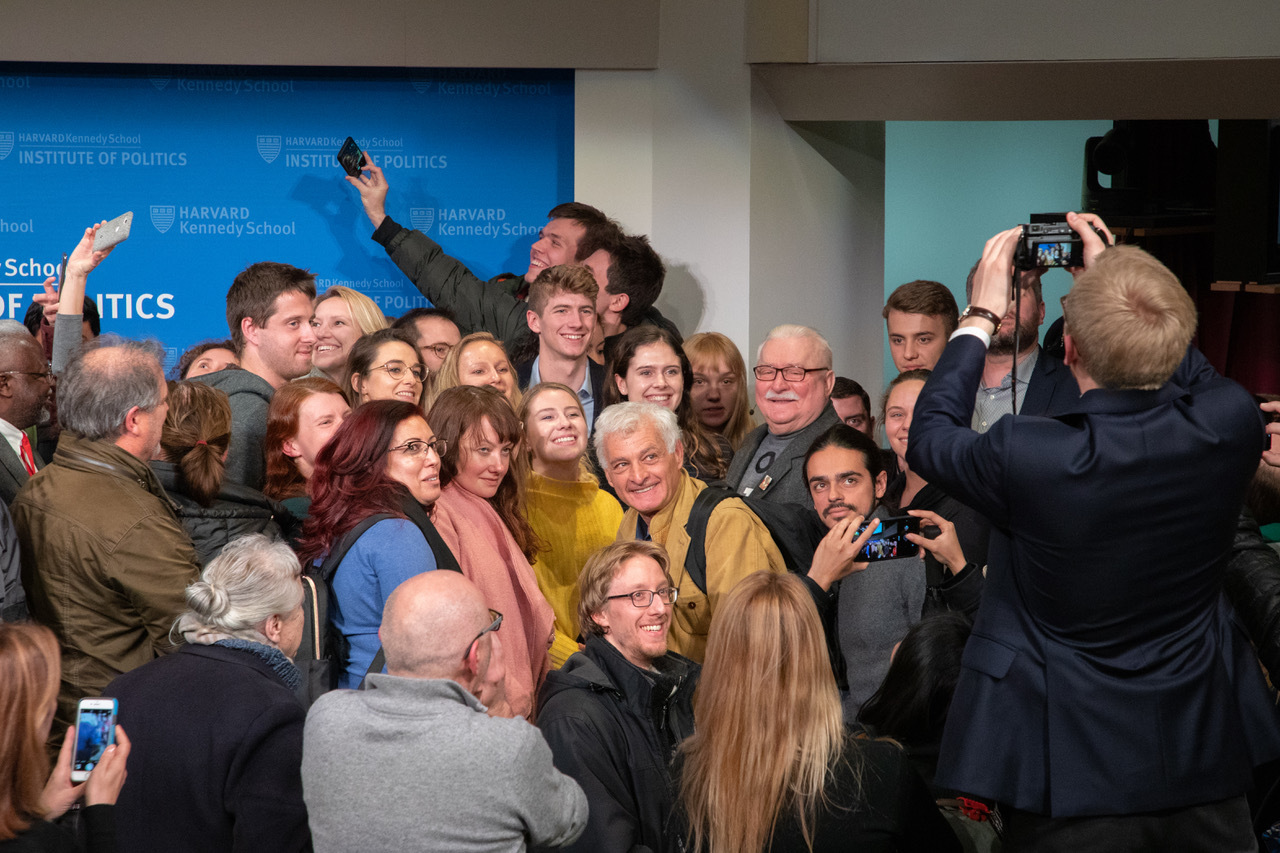After the Cold War ended 30 years ago, Europe closed the door on an era of division and entered a new era of peace and integration, one with a future centered around intellectual labor, information, and globalization. But the resulting disruption in job markets, economic inequities, and disputes over migrant labor across Europe have made it apparent that to move forward and not regress, the political, governmental, and economic structures of the past will need “remodeling, even democracy,” said renowned activist Lech Walesa on Monday evening at the Harvard Kennedy School.
During a talk on the evolution of post-Communist Europe, the former electrician who led the historic labor uprising in Soviet-controlled Poland in the 1980s worried about how that “remodeling” will get done without substantial U.S. participation. He recalled the period after World War II when the U.S. “used to be the leader for the world,” the “Good Empire” to Communism’s “Evil Empire.” From the Marshall Plan on, when Europe had problems or needed help solving issues, “people could really count on the United States to come to the rescue,” he said in Polish, speaking through an English language interpreter.
But the growing absence of the U.S. as a global force in recent years has left a void of ideas and leadership that populist figures in various nations have sought to fill with appeals to nostalgia and xenophobia, he said.


Clad in a gray T-shirt reading “Konstytucja” (Constitution) with the letters U and I highlighted, a shirt he has taken to wearing since 2018 to protest Poland’s move to curb judicial independence, a chatty and animated Walesa urged Harvard students — most of whom had not been born when Poland and East Germany shook loose from Soviet control in 1989 — to take up the fight against anti-democratic leadership and help identify solutions that resolve the ills that populism purports to address.
Earlier in the day, Walesa joined Grzegorz Ekiert, Laurence A. Tisch Professor of Government and director of the Minda de Gunzburg Center for European Studies (CES), students and faculty from Poland, and those interested in Eastern Europe for a freewheeling discussion at CES about political and economic issues in contemporary Poland and Europe.

